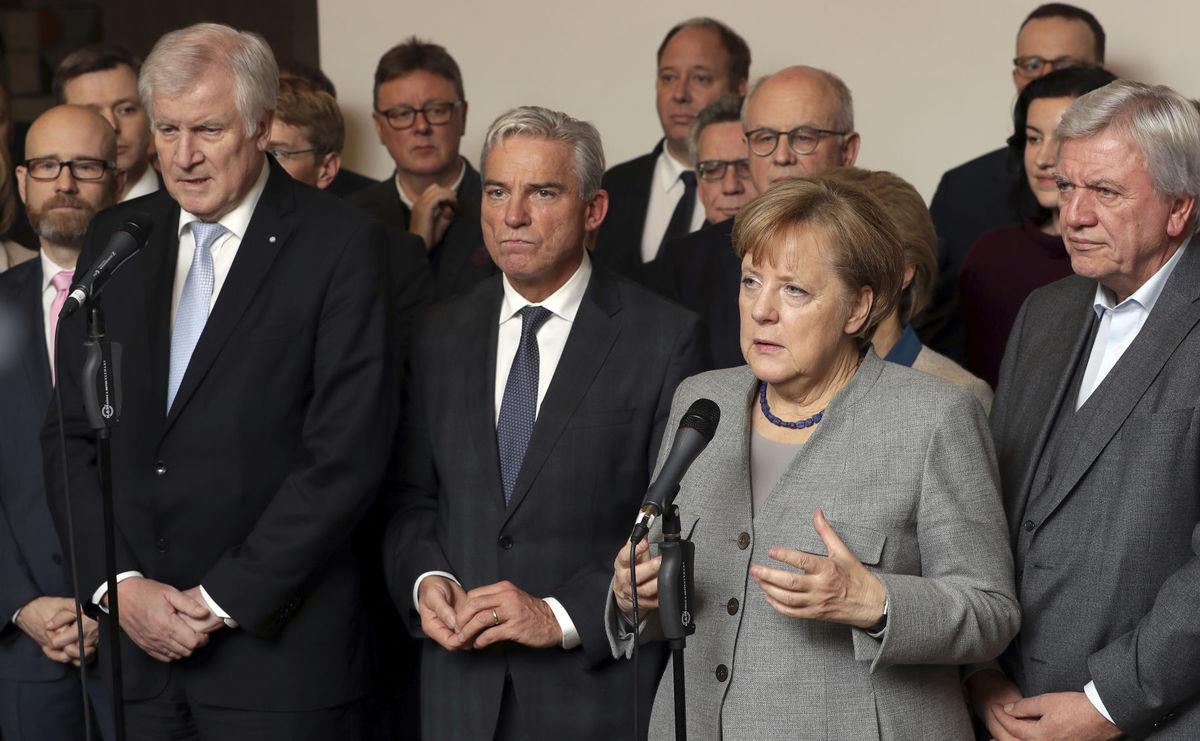BERLIN, Nov. 17 (Xinhua) -- German Chancellor Angela Merkel made a plea for unity amongst her Christian Democratic Union (CDU) party, as well as the Christian Social Union (CSU), Free Democratic Party (FDP) and Greens (Gruene) to avert the collapse of "Jamaica" coalition negotiations on Friday.
Merkel told press that talks which began four weeks ago were still complicated by the fact that the four prospective coalition partners held highly-diverse world views.
According to the CDU leader, "all sides would have to demonstrate the will" to successfully form Germany's next government together. "The CDU has this will," Merkel added.
Merkel's comments were made after the CDU, CSU, FDP and Greens failed to reach an agreement in 15-hour marathon talks which lasted late into Thursday night and were meant to constitute the final round of coalition negotiations.
In response, the German Social Democratic Party (SPD) reiterated its desire to return to the opposition benches of the federal parliament (Bundestag) and said they were not available for alternative coalition talks.
SPD parliamentary faction leader Andrea Nahles said that the consequence of a failure of "Jamaica" coalition negotiations would mean "there will have to be re-elections."
For now, the CDU, CSU, FDP and Greens have vowed to continue to hold discussions over the course of the weekend.
CDU/CSU parliamentary faction leader Volker Kauder said he believed that talks would last "the whole weekend." CSU leader Horst Seehofer went even further in suggesting that no time limit should be applied at all "after the experience of the past days."
Refugee policy is reportedly still the key sticking point in negotiations. The CSU is vehemently refusing to offer any additional leeway on humanitarian migrants' right to family reunification. By contrast, the CDU, FDP and Greens have all expressed their willingness to compromise on the issue.
"I think the problems can be solved" Peter Altmaier (CDU), the chief of staff of the German Chancellery and interim finance minister said.
Similarly, Katrin Goering-Eckardt, chief negotiator for the Greens, emphasized that her party's "willingness to compromise" remained intact.
According to participants in the final round of negotiations cited by German media, talks had repeatedly reached the brink of collapse as the Greens and CSU sparred over opposing stances on refugee policy.
The CSU wants to prolong a temporary regulatory provision made during the 2015 refugee crisis which suspends the right to family reunification for migrants who have received subsidiary protection in Germany instead of having been granted full asylum. The Greens reject this proposal as being on justifiable on humanitarian grounds.
FDP vice president Wolfgang Kubicki subsequently lamented on the public broadcaster ARD that he was "lacking in imagination" as to how the large rifts between the "Jamaica" parties could be overcome in the short amount of time available.
Nevertheless, FDP leader Christian Lindner also expressed optimism that a "common position" had already been found in "many areas".
On climate policy, for example, party representatives have made a significant step towards a mutually-acceptable compromise. The CDU and CSU offered to reduce coal power generation in Germany by up to seven gigawatts until 2020, bringing their position closer to demands by the Green party to achieve a reduction of eight to ten gigawatts.
However, a new opinion poll suggests that public support for a "Jamaica" coalition has fallen as talks drag on. Only 50 percent of people surveyed by the ZDF Politbarometer indicated a preference for the CDU, CSU, FDP and Greens to form a government, down seven percentage point compared to the beginning of talks.
Furthermore, 31 percent (up six percentage points) of respondents expressed their active dislike for a "Jamaica" coalition.
